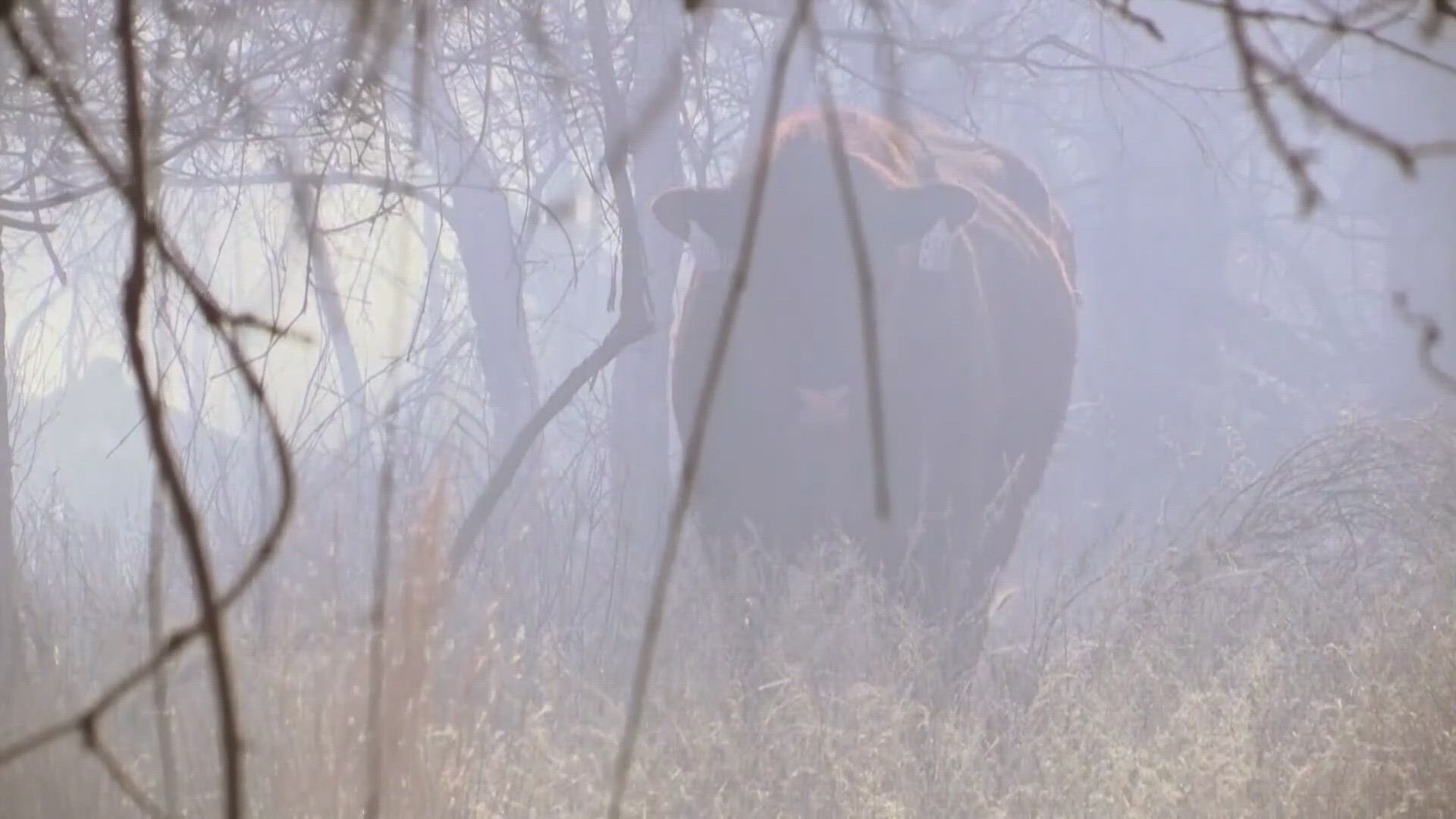SALADO, Texas — As crews are still working to contain the largest fire in Texas history, the cattle industry is also facing challenges as they lose land and cattle to the blaze.
Matthew May, owner of MMM Cattle Co., knows it all too well -- the cattle industry can be tricky, especially when things are out of one's control
"It's a generational thing," May added. "It can take generations to build this and you can lose it overnight."
That's exactly what happened to many ranchers in the Texas Panhandle. The many wildfires wiped out herds and grazing land.
"I hurt for them," May said. "It's a catastrophe. It's devastating. Just watching footage of some of the stuff that's going on -- it's heartbreaking."
It's estimated that the Panhandle fires killed at least 7,500 cattle and burned more than a million acres.
May said the Panhandle fires fueled one of the cattle industry's biggest issues -- population.
"Cattle numbers are down anyway, just from the droughts," May explained. "Texas alone in the past, I think five years, is down 12%, and that will just further add to the decline in the in the overall herd size in Texas. That will carry on for five, maybe even 10 years."
May told 6 News that having fewer cattle has required ranchers to make adjustments to compensate for the loss.
"It will probably benefit us in the short term, but in the long run it hurts us because it shrinks our foothold as far as the meat protein business," May explained.
For the ranchers that have lost their herds, May said building back could take years and cost a pretty penny too.
With many grazing lands and feed being scorched, prices of feed and hay are up for ranchers across the state.
"It will certainly cut into the hay that we have here, but we also have grass, [the Panhandle] doesn't have grass."
May also said with the cost of cattle production being high, there could be some impact on the consumer too.
"Prices will stay strong and they will stay high, both on the live cattle side and at the grocery store," May added.
The Perryman Group, which analyzes the economy, estimates that the agriculture-related losses tied to the wildfires will lead to a reduction in state economic activity with a value of more than $264 million in gross product.
More from 6 News:

